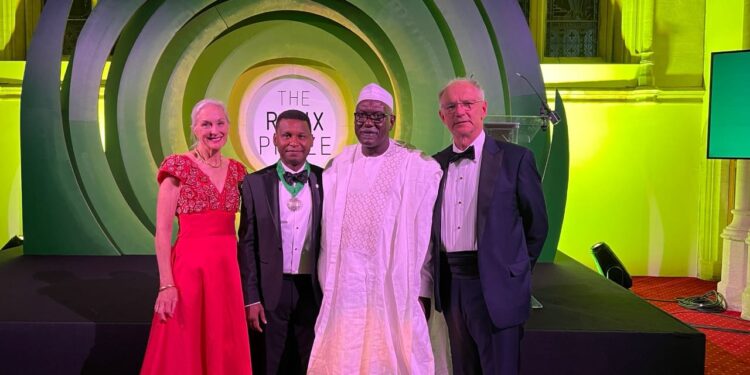A Nigerian Professor of Infectious Disease Epidemiology, Ibrahim Abubakar, has been awarded the 2023 Roux Prize for his “dedication to improving health outcomes over the last three decades.”
The Roux Prize is awarded by the Institute for Health Metrics and Evaluation (IHME) at the University of Washington’s School of Medicine.
As the Roux Prize winner, Mr Abubakar, who is the Dean of the Faculty of Population Health Sciences at the University College London (UCL), received $100,000 at the award ceremony held on 12 October in London.
According to the UCL, the award is to reinforce his efforts to support health systems in Nigeria and Africa’s Sahel region, benefitting some of the world’s poorest countries, among other significant global health programmes.
This award will no doubt be of great benefit to Nigeria’s healthcare system, which is still underdeveloped, with inadequate human resources, and poor healthcare financing and management.
Winning Roux price, achievements
In his remarks, Chris Murray, the director of IHME, said Mr Abubakar has been steadfast in his contributions to global health, adding that “his expertise and advocacy have directly affected policy implementation and the lives of millions of people.
The director noted that Mr Abubakar embodies exactly what the Roux Prize represents: innovation, ambition, and collaboration.
“The world of public health is a stronger place because of his ongoing contributions and commitment to change,” he said.
According to UCL, Mr Abubakar’s greatest achievement is his recent work on The Lancet Nigeria Commission which directly led to Nigeria passing a new law mandating basic health insurance and the creation of a vulnerable fund that covers 83 million underprivileged people.
In March 2022, he led an international multidisciplinary team on a comprehensive analysis of Nigeria’s health system supported by Global Burden of Disease (GBD) data, which identified critical gaps and offered recommendations in key areas to improve the health system.
“What drives me each day is the firm belief that the existence of health inequalities is not a given – it is within our reach to eliminate inequitable access to care if we work collectively to improve the lives and conditions of the most disadvantaged among us,” Mr Abubakar was quoted to have said.
He was said to have added; “My career veered to population health after witnessing the ravaging effect of HIV and other infections on my patients. As a young doctor, I distinctly remember patients arriving in my ward and dying of a preventable form of meningitis. Most of these patients were too poor and had been failed by society.
“I believe my subsequent achievements and persistent commitment to medicine and public health had a lot to do with the contrast I have seen all my life: what is possible with levels of opportunity and wealth and the unfairness of outcomes.”







